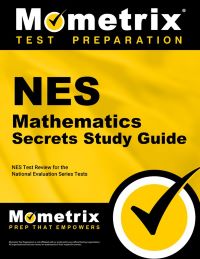NES Mathematics Exam for Middle Grade and High School
The National Evaluation Series (NES) Mathematics Exam is a standardized test designed for individuals seeking certification to teach mathematics at the middle school and high school levels. This exam assesses the candidate's knowledge and understanding of mathematical concepts and their ability to apply these concepts in a teaching environment. It is crucial for aspiring mathematics teachers to familiarize themselves with the exam's structure, eligibility criteria, syllabus, and format to ensure success.
Eligibility
To be eligible to take the NES Mathematics Exam, candidates must typically meet certain prerequisites set by the state or educational institution where they seek certification. While these prerequisites can vary, some common requirements include:
- Educational Background: Candidates should have completed a bachelor's degree in mathematics, mathematics education, or a related field. Some states may require additional coursework in education or pedagogy.
- Teaching Experience: Some states may require candidates to have prior teaching experience or to have completed a student teaching program as part of their degree requirements.
- State-Specific Requirements: Each state may have its own specific requirements for teacher certification, including passing additional exams or completing specific training programs. Candidates should check with their state's education department for precise details.
Syllabus
The NES Mathematics Exam covers a broad range of topics that are essential for teaching mathematics at the middle and high school levels. The syllabus is divided into several key areas:
- Number and Quantity: This section includes topics such as number systems, operations, ratios and proportions, complex numbers, and vectors.
- Algebra: Candidates are expected to understand expressions, equations, inequalities, functions, and their applications. This includes linear, quadratic, polynomial, exponential, and logarithmic functions.
- Functions: This area focuses on understanding and interpreting functions, including their properties, transformations, and inverses. It also covers linear, quadratic, and exponential models.
- Geometry and Measurement: Topics include the properties of geometric figures, theorems, coordinate geometry, and measurement concepts such as perimeter, area, and volume.
- Statistics and Probability: Candidates should be familiar with data analysis, probability models, statistical reasoning, and interpreting data from various sources.
- Calculus: Although not always a major focus, some exams may include introductory calculus concepts such as limits, derivatives, and integrals.
It is important for candidates to have a strong grasp of these topics, as they form the foundation of the mathematics curriculum at the middle and high school levels.
Format of the Exam
The NES Mathematics Exam is typically a computer-based test, designed to evaluate both the depth and breadth of a candidate's mathematical knowledge. The exam format generally includes:
- Multiple-Choice Questions: These questions assess the candidate's understanding of mathematical concepts and their ability to apply these concepts in various scenarios. Candidates must select the best answer from a list of options.
- Constructed-Response Questions: In some versions of the exam, candidates may be required to provide written responses to open-ended questions. These questions are designed to evaluate the candidate's ability to explain mathematical concepts clearly and effectively.
- Time Limit: The exam typically has a set time limit, often ranging from 2 to 3 hours, depending on the specific requirements of the state or institution.
The scoring of the NES Mathematics Exam is based on the number of correct answers, with no penalty for incorrect answers. Candidates should aim to demonstrate a comprehensive understanding of mathematical principles and their applications in teaching.
Preparation Tips
To succeed in the NES Mathematics Exam, candidates should engage in thorough preparation. Here are some tips to help candidates prepare effectively:
- Review the Syllabus: Familiarize yourself with the exam syllabus and identify areas where you need to focus your study efforts.
- Practice with Sample Questions: Many resources offer practice questions and exams that simulate the actual test. These can help you get a feel for the types of questions you may encounter.
- Study Resources: Utilize textbooks, online courses, and study guides that cover the topics in the syllabus. Consider joining study groups or forums to discuss challenging concepts with peers.
- Time Management: Practice managing your time effectively during the exam to ensure you can complete all questions within the allotted time.
- Understand the Format: Familiarize yourself with the format of the exam, including the types of questions and the scoring system.
By following these preparation tips and dedicating sufficient time to study, candidates can enhance their chances of performing well on the NES Mathematics Exam and achieving their goal of becoming certified mathematics teachers.
Conclusion
The NES Mathematics Exam is a crucial step for individuals aspiring to teach mathematics at the middle and high school levels. Understanding the eligibility criteria, syllabus, and exam format is essential for effective preparation. By thoroughly reviewing the topics covered in the exam and practicing with sample questions, candidates can build the confidence and knowledge needed to succeed. Ultimately, passing the NES Mathematics Exam is a significant milestone on the path to becoming a certified mathematics educator.
NES Mathematics Exam
A Complete NES Mathematics Exam Study Guide that includes sample questions, test tips and a complete study plan prepared by a team of expert and dedicated researchers. Cost-effective and qualified exam help from a committed exam preparation company.
NES Mathematics Study Guide (printed book)
NES Mathematics Study Guide (ebook access)
NES Mathematics (Middle Grades and Early Secondary) Study Guide (printed book)
NES Mathematics (Middle Grades and Early Secondary) Study Guide (ebook access)
NES Mathematics (Middle Grades and Early Secondary) Flashcards

